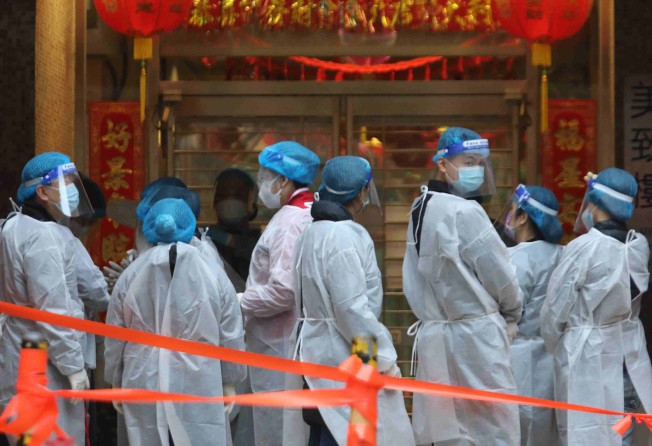Coronavirus: Hong Kong urged to maintain ‘dynamic zero-Covid’ policy, with Beijing officials and state media warning shift will mean disaster for city
- Strategy embodies anti-epidemic concept that ‘prioritises people and lives, which has also been proven to achieve maximum results with minimum cost’, People’s Daily says
- Shift away from policy will affect resumption of quarantine-free travel with the mainland, it warns

Beijing officials and state media have been urging Hong Kong to stick with the “dynamic zero-Covid” strategy, warning that any shift towards “living with the virus” will result in disaster for the city and the deferment of any resumption of quarantine-free travel with mainland China.
The warnings, from a senior mainland health official and the Communist Party mouthpiece People’s Daily, came as Hong Kong reported 614 new coronavirus infections on Monday, the highest daily number since the pandemic began two years ago.
Print option is available for subscribers only.
SUBSCRIBE NOW